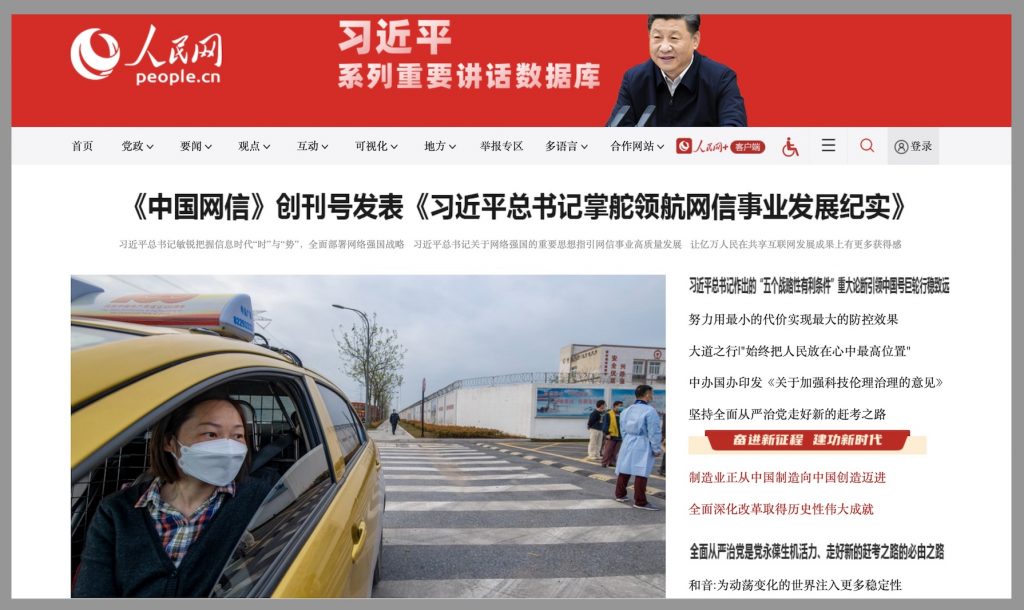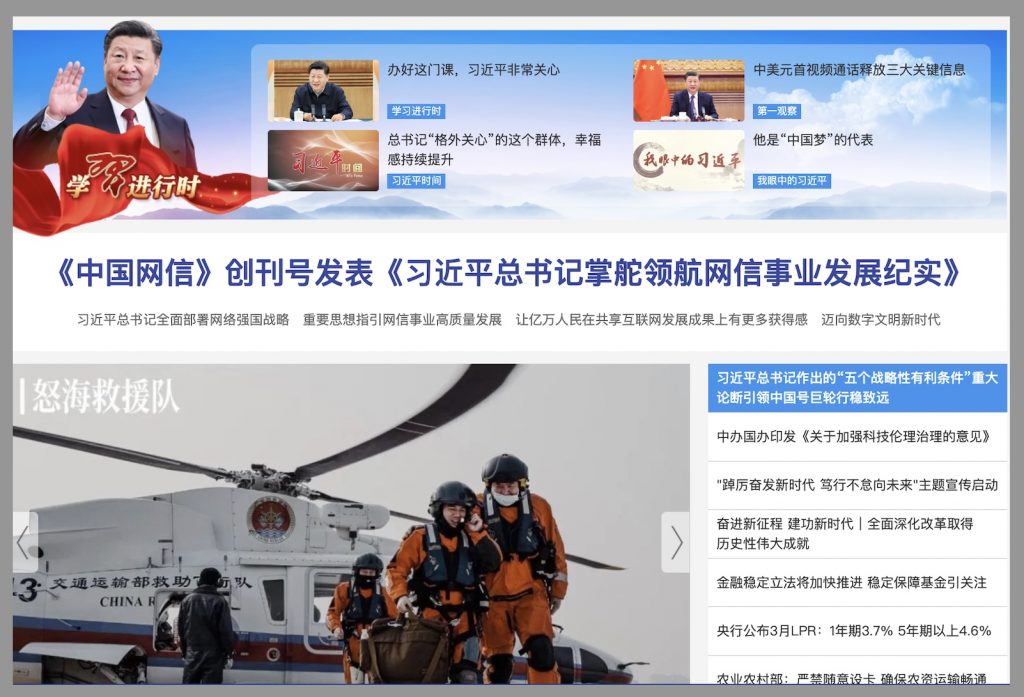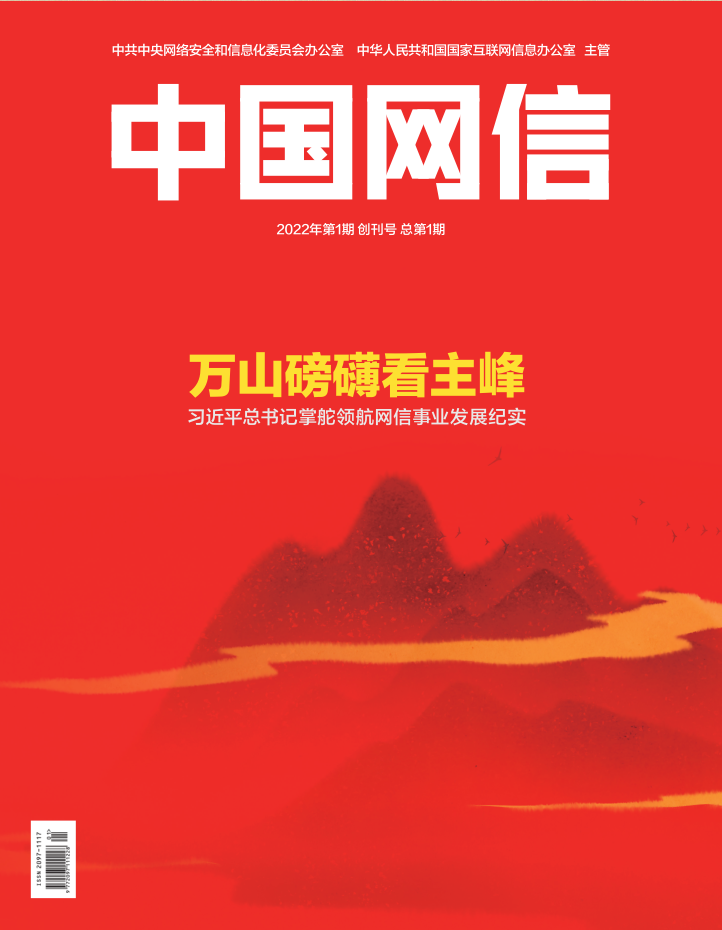
Earlier this year CMP wrote about the re-branding of the flagship publication of the Cyberspace Administration of China (CAC), the country’s chief internet monitoring and control body. Previously called New Media (网络传播), the journal, which is published quarterly, was to be renamed in Chinese “China Cyberspace” (中国网信), a more direct reference to the agency. Reports suggested that the English name of the journal would remain unchanged.
Today, People’s Daily Online promotes the launch of the first quarterly issue of the re-branded New Media journal with a large headline splashed across the top of the site. In keeping with the character of recent news and propaganda in China, which lays emphasis on Xi Jinping and his leadership ahead of the 20th National Congress of the CCP, to be held this fall, the headline announces that the launch edition the new New Media features a “record of the development of cyberspace work” with Xi Jinping “leading at the helm” (舵领).

Even the choice of the phrase “leading at the helm” in the headline is a strong reference to the power and prestige of Xi within the CCP — invoking the notion of the “helmsman” that recalls the era of Mao Zedong.
Even in the midst of ongoing news about the devastation in Ukraine and tensions in the US-China relationship, the launch of the newly branded CAC journal was also the top story at the website of the official Xinhua News Agency. None of the top stories to the right-hand side of the slider feature on the Xinhua site dealt with the war in Ukraine or foreign affairs.

Interestingly, the newly branded CAC journal does not include the publication’s English-language name. The bright red cover of “China Cyberspace” includes only the main story headline — about Xi’s leadership on cyberspace work — and reference to the management of the publication by the CAC and the Office of the Central Cyberspace Affairs Commission (中共中央网络安全和信息化委员会办公室), the office led directly by Xi.

Previous editions of New Media included the publication’s English name, and the decision to omit the English on the relaunched publication could reflect the growing sense of what Xi Jinping has promoted as “cultural confidence” (文化自信), the need to uphold and strengthen traditional Chinese culture as a means toward what Xi has called “the great rejuvenation of the Chinese nation.”
In a letter accompanying the launch edition, CAC chief Zhuang Rongwen (庄荣文), who has led the crackdown on Chinese internet firms over the past year, emphasized the “four confidences,” “four consciousnesses” (四个意识), and “two safeguards” (两个维护), a formula that includes protection of Xi Jinping as the “core” leader of the CCP, and of the preeminence of the CCP itself. The so-called “442” formula is now routinely used to signal loyalty to Xi ahead of the 20th Congress.
Zhuang also stressed the CCP’s goal of building China as a “cyber power” (网络强国), essentially the idea of advancing internet technologies and the internet-based economy while maintaining a strong system of internet controls to maintain Party leadership of public opinion.




















